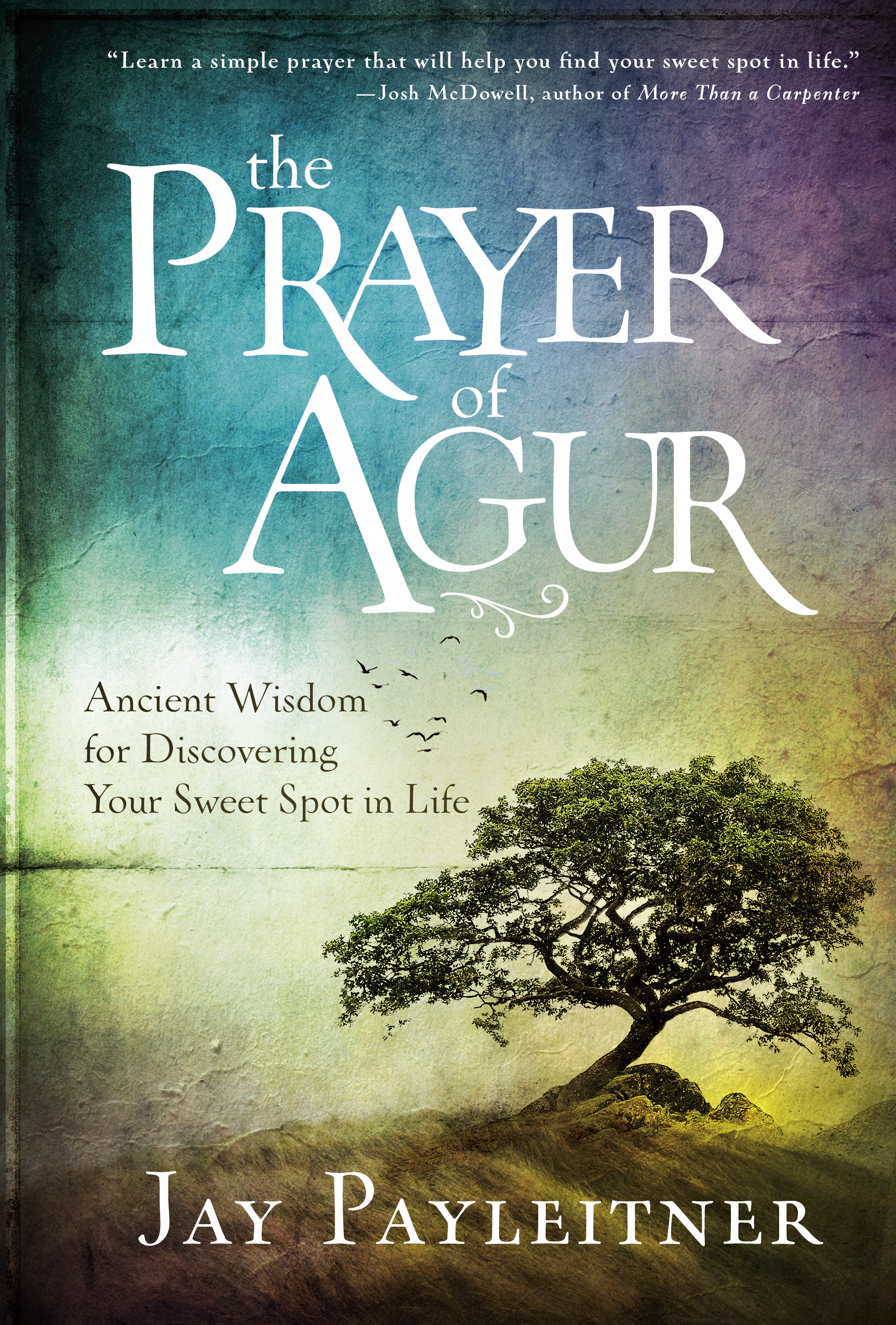When Having Your Needs Met Is All You Need

Are you, like me, caught in the middle? Being pulled in two directions? Some days, we want more. More opportunities. More responsibilities. And, yes, more stuff. Other days, we want less. Fewer distractions. Fewer responsibilities. Less stuff to take care of and worry about.
We’re either energized or exhausted. Confident or reluctant. Spiritually in tune or entertaining doubts.
Allow me to introduce you to Agur. He’s the guy inspired by God to unscramble this exact conundrum. Agur’s commonsensical approach to life and his strangely amusing chapter near the end of the book of Proverbs reveal how you already might be in the center of God’s will. That’s a wonderful place to be. Especially in today’s turbulent culture.
In Proverbs 30, he prays a simple prayer—and the only prayer found in the book of Proverbs.
“Give me neither poverty nor riches, but give me only my daily bread.”
What? you say. Moderation? That’s not on anyone’s checklist, especially in the twenty-first century. We are living in an age of extremes.
For most people, bigger will always be better. More house. More car. More closet space. More shelves for more trophies. More activities. More responsibility so you can gain more of the above.
On the flip side is another extreme: a subculture of people— even entire communities—who are choosing to live as minimalists. It’s not a new phenomenon, but minimalism has recently made its way into the public eye. Maybe you know people who are mildly obsessed with cutting up credit cards and clearing out clutter. They eschew the latest gadgets, and their entire wardrobe fits in one cardboard box and a knapsack. Their expressed goals include napping more and living 100 percent debt-free. They are conspicuously moving into micro apartments and tiny homes.
Committed minimalists pause before purchasing and practice the “one in, one out” rule, which means they don’t buy something new without getting rid of something they no longer need or use.
Some social scientists suggest that the practice of minimalism is a response to the unabashed consumerism that exploded after World War II. The men and women who grew up in the Great Depression and lived during World War II came to be known as the greatest generation. When they started their own families, these men and women were the first to buy televisions, second cars, and houses in the suburbs. Suddenly “faster” was ubiquitous, as evidenced by the introduction of interstate highways, commercial jet airlines, direct-dial telephones, and fast-food restaurants.
Don’t be mistaken: that generation—mostly departed—was not motivated by greed. They were all about building a better life for their families. Quite nobly, they wanted their kids to have and achieve more than they did growing up. Unfortunately, they couldn’t anticipate the consequences of their ambitions.
Any student of recent history will tell you—two or three generations later—that evidence reveals that bigger, faster, busier, and pricier might not be better. Without listing the multiple ways that society is broken, suffice it to say it’s not uncommon for bigger, faster, busier, and pricier to lead to heartbreak and despair. When we consider the ramifications of overspending, overconsuming, and overindulging, there is ample justification for the minimalist mind-set.
Still, Agur is not endorsing minimalism. Nor is he suggesting that wealth and influence define success. He endorses neither fast nor slow, big nor small, fancy nor simple.
Our endearing friend Agur has identified a sweet spot: the perfect balance of getting what you need and needing what you get. He sums it up nicely: “my daily bread.”
Any of Agur’s peers who heard this prayer would instantly connect this request to the daily manna God had provided to their ancestors as they wandered the desert for forty years as described in Exodus. Manna appeared once a day, provided by God in just the right amount at just the right time.
In the twenty-first-century, we recognize the phrase “give us this day our daily bread” from the Lord’s Prayer, delivered almost a thousand years later by Jesus in His Sermon on the Mount.
The words are comfortable, and we nod our heads. Yes, Lord, please meet our daily needs.
The thing is, that’s not what Agur prayed. He added the word only, introducing an entirely deeper level of trust in the One who provides. In the midst of the push and pull of your life, might you have the courage and fortitude to profess Agur’s prayer? “Give me neither poverty nor riches, but give me only my daily bread.”
Adapted from The Prayer of Agur: Ancient Wisdom for Discovering Your Sweet Spot in Life. Copyright © 2020 by Jay Payleitner. Published by Multnomah, an imprint of Random House, a division of Penguin Random House LLC, on June 9, 2020. Used with permission.
Can God change your life?
God has made it possible for you to know Him and experience an amazing change in your own life. Discover how you can find peace with God. You can also send us your prayer requests.
We encourage users who wish to comment on our material to do so through our CBN Facebook page.






